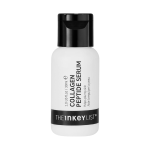A consistent skincare routine is essential for maintaining healthy, radiant skin. Among the myriad of skincare ingredients available, Vitamin C stands out as a powerful antioxidant that offers numerous benefits. From brightening your complexion to protecting against environmental damage, incorporating Vitamin C into your skincare routine can transform your skin. In this article, we’ll dive into the science behind Vitamin C, its benefits, and how to effectively include it in your daily regimen. By the end, you’ll understand why "skincare routine Vitamin C" is the secret to glowing skin.
Understanding Vitamin C in Skincare
Vitamin C is a water-soluble vitamin that plays a critical role in skin health. Known for its antioxidant properties, Vitamin C combats oxidative stress caused by free radicals, which are molecules that damage skin cells and accelerate aging.
Types of Vitamin C in Skincare Products
Several forms of Vitamin C are used in skincare formulations, including:
- L-Ascorbic Acid : The most potent and effective form but can be unstable.
- Magnesium Ascorbyl Phosphate : A stable, water-soluble derivative ideal for sensitive skin.
- Tetrahexyldecyl Ascorbate : A fat-soluble form that penetrates deeper into the skin.
These forms vary in potency and stability, so selecting the right one for your skin type is essential.
How Vitamin C Works
When applied topically, Vitamin C boosts collagen production, neutralizes free radicals, and reduces melanin production, making it an essential ingredient for achieving a youthful and even-toned complexion.

Benefits of Vitamin C for Skin
Adding Vitamin C to your skincare routine can lead to numerous visible improvements in skin health and appearance.
- Brightens Dull Skin
Vitamin C inhibits melanin production, reducing dark spots and hyperpigmentation. This helps brighten the complexion and create an even skin tone. - Fights Free Radicals and Protects Against Environmental Damage
As an antioxidant, Vitamin C shields your skin from damage caused by UV rays and pollution, preventing premature aging. - Promotes Collagen Production
Collagen is essential for skin elasticity and firmness. Vitamin C stimulates collagen synthesis, helping to reduce fine lines and wrinkles. - Reduces Inflammation and Improves Skin Texture
Vitamin C has anti-inflammatory properties that soothe irritated skin and minimize redness, leaving the skin smoother and healthier.
How to Incorporate Vitamin C into Your Skincare Routine
Adding Vitamin C to your routine doesn’t have to be complicated. Here’s a step-by-step guide:
1. Cleanse Your Skin
Start with a gentle cleanser to remove dirt, oil, and makeup. A clean canvas ensures Vitamin C penetrates effectively.
2. Tone Your Skin
Use a toner to balance your skin’s pH and prepare it for the serum application.
3. Apply a Vitamin C Serum
- Use 2–3 drops of a Vitamin C serum, patting it gently into your skin.
- Focus on areas prone to dark spots or dullness.
- For beginners, start with a lower concentration (around 10%) and gradually increase to higher concentrations (15–20%).
4. Moisturize
Lock in hydration with a moisturizer suited to your skin type.
5. Protect with Sunscreen
Vitamin C can make your skin more sensitive to sunlight, so apply a broad-spectrum sunscreen with at least SPF 30 every morning.
Morning vs. Evening Use
Vitamin C is most effective in the morning to protect against daily environmental aggressors. However, it can also be used at night to repair and rejuvenate the skin.
Dos and Don’ts
- Avoid combining Vitamin C with retinol or exfoliating acids to prevent irritation.
- Always apply Vitamin C to dry skin after cleansing.
Choosing the Right Vitamin C Product
Selecting the best Vitamin C product for your skin requires attention to detail.
Key Factors to Consider
- Concentration : Higher concentrations (15–20%) are more effective but may irritate sensitive skin.
- Formulation : Opt for serums with stabilized Vitamin C and complementary antioxidants like Vitamin E.
- Packaging : Choose products in opaque, airtight bottles to prevent oxidation.
Best Options for Different Skin Types
- Oily Skin : Look for lightweight, water-based serums.
- Dry Skin : Opt for formulations with added hydrating ingredients like hyaluronic acid.
- Sensitive Skin : Use gentle derivatives like magnesium ascorbyl phosphate.
Always patch-test new products to ensure compatibility with your skin.

Common Mistakes to Avoid with Vitamin C
Even though Vitamin C is highly beneficial, improper use can reduce its effectiveness or cause irritation.
- Using Too Much
Overloading on Vitamin C can lead to irritation. Stick to a few drops of serum. - Skipping Sunscreen
Failing to apply sunscreen can make your skin vulnerable to sun damage, counteracting Vitamin C’s benefits. - Storing Incorrectly
Exposure to air and light causes Vitamin C to degrade. Always store your product in a cool, dark place. - Mixing with Incompatible Ingredients
Avoid layering Vitamin C with benzoyl peroxide or retinol, as they can destabilize the serum.
Vitamin C is a game-changer in skincare. Its ability to brighten, protect, and rejuvenate makes it an essential ingredient for all skin types. By incorporating a Vitamin C serum into your routine, you can achieve healthier, more radiant skin.
Ready to transform your skincare routine? Start with a trusted Vitamin C product and follow the tips outlined here. Remember, consistency is key—glowing skin is just a routine away!
Leave a comment
Your email address will not be published. Required fields are marked *















